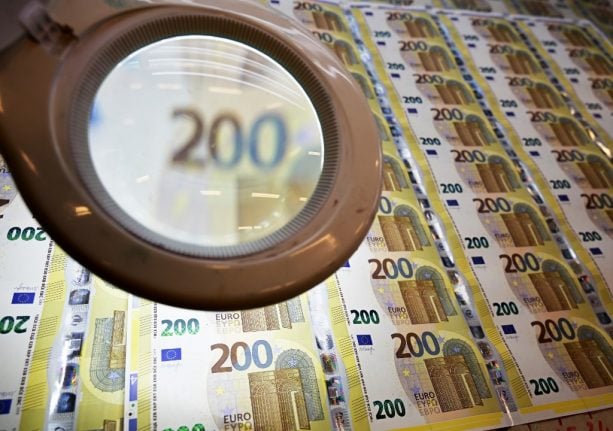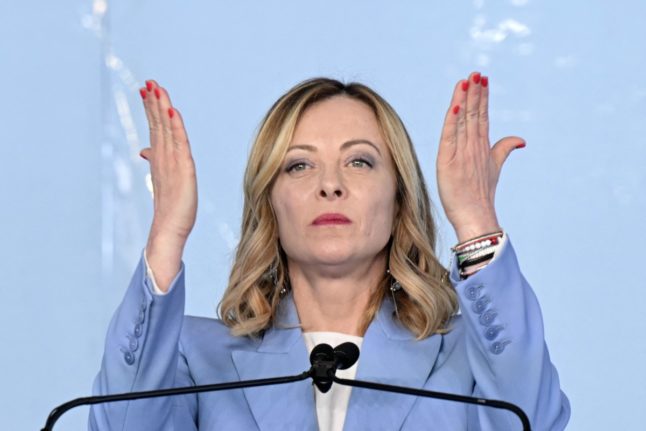Why does Italy's government want to introduce a new currency?
The Italian government is threatening to launch a “parallel currency” in the country as a riposte to EU demands for it to rein in its massive (and growing) public debt.
After pushing ahead with a controversial big-spending budget, Italy is now heading for record high levels of public debt, zero growth, and possibly €3.5bn in fines from the European Commission on top.
READ ALSO: European stocks drop as trouble brews between Rome and Brussels
But Italy's League party, which is part of the ruling coalition governent, wants to increase public spending further. It insists the solution is not to cut back – but instead to introduce another kind of currency.
The threat of introducing another currency is also seen as an attempt to push the European Commission into changing current fiscal rules.
Does Italy want to get rid of the euro?
The idea is that this “parallel currency” would be used alongside the euro, as you wouldn't be able to spend it online or outside of Italy.

Some economists likened the proposed new currency to the lira. Photo: Depositphotos
While some politicians in Italy's populist government are staunchly against the euro, there's no public appetite in Italy for leaving the eurozone.
Leaving the European Union is not on the table either, despite reports in some UK newspapers to the contrary.
The League and its coalition partner, the Five Star Movement, both have a history of euroscepticism, but both parties have given up on the idea of getting rid of the euro and their programme contains nothing that questions Italy’s membership of the single currency.
So what is this currency and how would it work?
Italy is talking about issuing treasury notes called “minibots” which could only be used within the country.
An acronym for Mini Bills of Treasury, the minibot is an instrument similar to an IOU that its proponents believe will allow the cash-strapped Italian government to pay debts, stimulate the Italian economy and give Italians a way to pay their taxes.
The government could use minibots to pay social benefits and accept them for tax payments. Private businesses would not be required to accept them, although they apparently could if they wanted to.

The euro isn't going anywhere. Photo: Depositphotos
Claudio Borghi, the League's economics chief, who is the main proponent of the scheme and staunchly anti-euro, said the certificates would quickly become accepted more widely and used as a form of money to be “spent anywhere, to buy anything,” though “being paper they could not be used online.”
What would this do to the economy?
Borghi said minibot treasury notes would stimulate Italy's economy, and would be “a way to mobilise credit that is badly needed and put money into circulation.”
But critics have already called the proposed parallel currency “the new Lira” and say it would just increase Italy's public debt even more (Italy already has the highest debt in the Eurozone, after Greece.)
READ ALSO:
“Italy might be able to use mini-bots (or let’s be honest and call them the new lira) to finance deficit spending without breaking eurozone rules” Economist John Mauldin wrote in Forbes last summer when the idea of a parallel currency was first suggested.
“This could ultimately debase the euro and blow apart the eurozone. Germany would have to leave. From there, you can draw your own map,” he added.
Some critics of the scheme believe the parallel currency would have the wider aim of allowing Italy’s economy to continue to function if it left the eurozone and the EU.
Has any other European country done this before?
The idea was last proposed in Greece as the country faced a shortage of euros following the financial crisis.
Greece looked at introducing a parallel currency for some domestic transactions, while keeping the euro in place for existing bank deposits and for foreign transactions. The plan was ultimately abandoned as unworkable.

Photo: Vasily Maximov/AFP



 Please whitelist us to continue reading.
Please whitelist us to continue reading.
Member comments